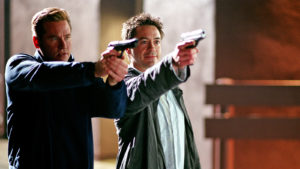“It was never my intention to become the Princess of Genovia. It was my intention to become an actress.”
So says 24-year old Brooklyn-born Anne Hathaway, referring to the fictional kingdom that made her famous in The Princess Diaries, the 2001 film that, together with its 2003 sequel, made her a hit with 12-year old girls. Having already starred in US teen drama Get Real and going on to play another soppy princess in dire kids’ fantasy Ella Enchanted, she looked to set to remain as the human equivalent of a McFlurry. And then Brokeback Mountain got her good.
“I’d got my fill of those early roles,” she tells The Big Issue from a room at London’s Dorchester Hotel. “It was really Brokeback when I first played a character that was so different to who I was. I loved the way it fired up my imagination and how terrified I was of failure. It kinda becomes addictive.”
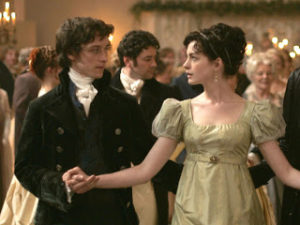 As Luveen, the brassy Texan gal who finds herself married to Jake Gyllenhaal’s gay cowboy, Hathaway was a revelation; those critics who’d dismissed her as fit only for soporific live-action Disney movies were forced to eat their words. Hollywood, though, had long been aware of her potential, with Princess Diaries director Garry Marshall describing Hathaway in Variety magazine as, “multi-talented… a combination Julia Roberts, Audrey Hepburn and Judy Garland.”
As Luveen, the brassy Texan gal who finds herself married to Jake Gyllenhaal’s gay cowboy, Hathaway was a revelation; those critics who’d dismissed her as fit only for soporific live-action Disney movies were forced to eat their words. Hollywood, though, had long been aware of her potential, with Princess Diaries director Garry Marshall describing Hathaway in Variety magazine as, “multi-talented… a combination Julia Roberts, Audrey Hepburn and Judy Garland.”
“I’ve been obsessed with Austen since I was 14 and I didn’t want to take the part at first because I felt there was a very good chance, as there is with every role, that you’re just going to mess up and be horrible and unwatchable.”
It wasn’t long before Hathaway was trusted with a lead role and last year’s The Devil Wears Prada proved to be the ideal choice. The frothy story of a wholesome, unpretentious young woman dropped suddenly into the snake-pit of a fashion magazine, it appealed both to Hathaway’s teen fans and adults (especially, it has to be said, gay men, making Marshall’s Hepburn and Garland comments seem particularly prescient). Most importantly, it proved Hathaway could hold her own against the mighty Meryl Streep, who delivered an Oscar nominated and Golden Globe-winning performance as bitch-queen editor-in-chief, Miranda Priestly.
All of which brings us to the reason Hathaway is in London: Becoming Jane in which she stars as no less a literary giant as Jane Austen. Based on the biography by Jon Spence of the same name, it focuses on Austen’s early years, postulating that Austen, far from being a bookish spinster, met and fell in love with charming Irishman Thomas Langlois Lefroy, here played brilliantly by James McAvoy.
Unlike the similarly themed Shakespeare In Love, much of Becoming Jane’s hypothesis can be supported. It is documented that Austen and Lefroy met at a ball in Hampshire shortly before Christmas 1795, when he was visiting his Aunt and Uncle Lefroy, the Austens’ neighbours. He was a recent graduate of Trinity College, Dublin, and was bound for London where he was to study law. Austen had just completed Elinor and Marianne, the first version of Sense and Sensibility. Both 20 years old, there’s strong evidence that the two were mutually attracted and, against the prescriptive morés of the time, did little to hide it. Indeed, faced by disapproval from her sister, Cassandra,, Austen teasingly described her relationship with Lefroy as “every thing most profligate and shocking in the way of dancing and sitting down together.” The sauce-pot.
For Hathaway, it was the opportunity of a lifetime, but one she was reluctant to take.
“I’ve been obsessed with Austen since I was 14,” she admits, “and I didn’t want to take the part at first because I felt there was a very good chance, as there is with every role, that you’re just going to mess up and be horrible and unwatchable.”
It was Ang Lee, who’d just directed Hathaway in Brokeback Mountain and was responsible for arguably the finest movie adaptation of Austen’s work, Sense And Sensibility, who persuaded her to take the part. However initially reticent, once Hathaway had made the decision, she threw herself into task.
“I thought, even if I do a really crap job, at least they won’t be able to get me on the research,” she says. “I moved to England for a month before we started filming and worked on the accent and I started research about the period, about what it would have been like to live in the countryside at that time and we read her letters, learned sign language [Austen had a deaf mute brother], learned to play the piano…” She laughs, adding: “The skills portion of my resumé greatly improved after this role.”
Another essential component of becoming Jane was learning to dance.
“These days you just shake your butt and you’re a good dancer,” Hathaway says. “Back then there was actual choreography. I’d had dance training before; I think like a dancer so that was one aspect of the role I wasn’t worried about.”
Hathaway’s heightened fear of failure proved to be almost crippling.
“It became paralysing, the fear that I’d mess up portraying someone who I admire, who I respect. I put a lot of pressure on myself. And I forgot about it while we were filming and then, inexplicably, about a month after we wrapped I started having panic attacks and nightmares about being stabbed to death by Jane Austen’s ghost. I’d wake up in the middle of the night sweating and breathing really heavily. That stopped once I got to watch the film and really liked it.”
This, despite the film’s lowly budget and the fact that it was shot almost entirely on location in the Irish countryside, fantastic for the overabundance of intact Georgian architecture but not so great in terms of weather.
 “It was really changeable,” recalls Hathaway. “We didn’t know if it was the Gods or Jane being upset that I was playing her but every single time I had to do a close-up, it would rain. And it was cold! The accent took a lot of work but when you’ve been in a field for five hours waiting for the rain to stop and just standing there freezing… I just sound drunk in a lot of scenes.”
“It was really changeable,” recalls Hathaway. “We didn’t know if it was the Gods or Jane being upset that I was playing her but every single time I had to do a close-up, it would rain. And it was cold! The accent took a lot of work but when you’ve been in a field for five hours waiting for the rain to stop and just standing there freezing… I just sound drunk in a lot of scenes.”
Hathaway is too hard on herself. Her English accent is the best to come from an American since Gwyneth seduced the Bard. Her performance, too, is immensely likeable, cementing her reputation as a leading lady who can carry a movie. With that in mind, does she feel her turn as Austen precludes her from taking on any of the novelist’s celebrated heroines. Hathaway hopes not.
“I’m a hack,” she jokes. “I love to work so I’d love to play any of them. I’d love to play Anne Elliot. I think they’re remaking that [Persuasion]. There was the wonderful BBC version with Amanda Root ten years back. She kind of did the perfect job. There have been some very definitive performances with Austen’s heroines, Emma Thompson and Kate Winslet in Sense And Sensibility for instance. I’d love to join them.”

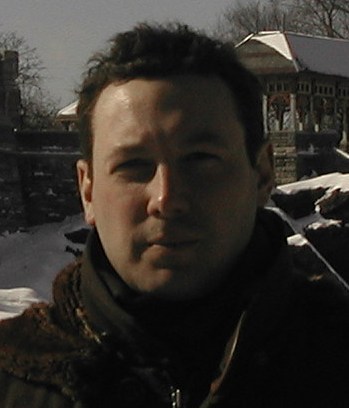
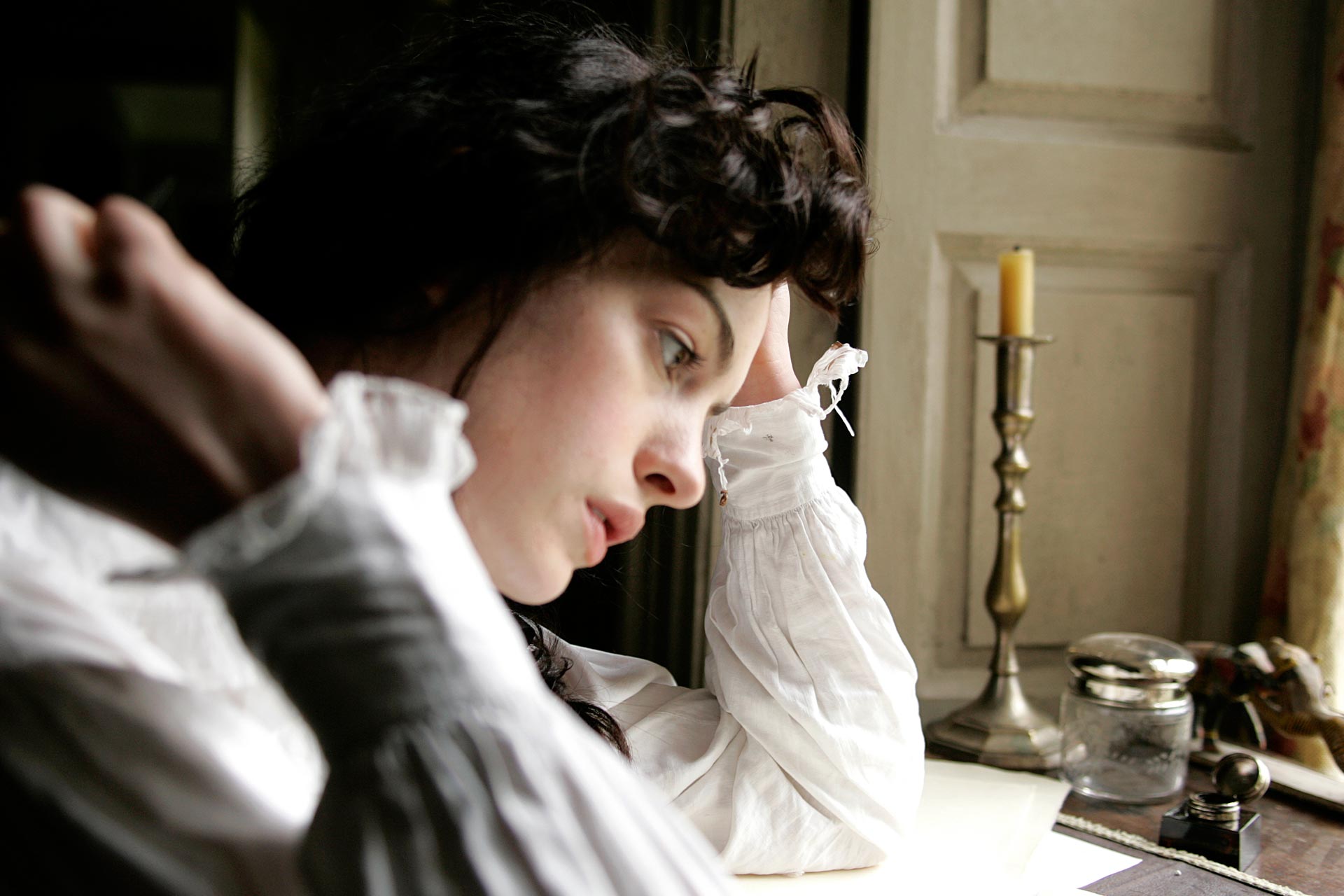

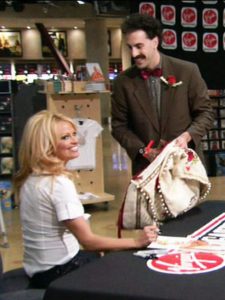 “Jagshemash!” he booms from behind a podium, in front of which stand auto-cue screens; so much for Baron Cohen the master improviser. Much of his resolutely un-PC material has been heard before at other press conferences available online, as have some of his put-downs to members of the press asking questions.
“Jagshemash!” he booms from behind a podium, in front of which stand auto-cue screens; so much for Baron Cohen the master improviser. Much of his resolutely un-PC material has been heard before at other press conferences available online, as have some of his put-downs to members of the press asking questions.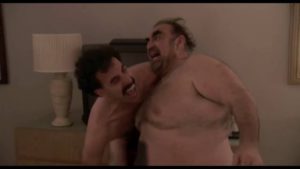 As it was, the production’s guerrilla-style filmmaking involved the cops on numerous occasions. A warrant was issued for Baron Cohen’s arrest in New York, after he – as Borat – ran naked through a hotel waving a rubber fist-shaped dildo. While he narrowly avoided incarceration, producer Monica Levinson and production manager Dale Stern didn’t fare so well, thrown in a cell by the NYPD for ‘borrowing’ a phone, alarm clock and comforter from a local hotel to use as props. Even though the filmmakers had a location agreement and a $5 million insurance policy, the police went ahead with the arrests. To protect his colleagues, Stern ate a sheet listing the names and phone numbers of the film’s crew.
As it was, the production’s guerrilla-style filmmaking involved the cops on numerous occasions. A warrant was issued for Baron Cohen’s arrest in New York, after he – as Borat – ran naked through a hotel waving a rubber fist-shaped dildo. While he narrowly avoided incarceration, producer Monica Levinson and production manager Dale Stern didn’t fare so well, thrown in a cell by the NYPD for ‘borrowing’ a phone, alarm clock and comforter from a local hotel to use as props. Even though the filmmakers had a location agreement and a $5 million insurance policy, the police went ahead with the arrests. To protect his colleagues, Stern ate a sheet listing the names and phone numbers of the film’s crew.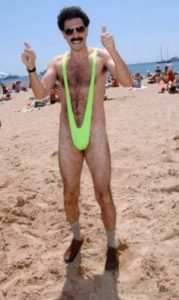 Baron Cohen no doubt has similar stories, especially as he reportedly r#main#d as Borat even when being beaten to the ground by security guards. But his insistence on staying in character and refusal to appear before the press as himself, while no doubt th# k#y to his fantastic performance, is intensely frustrating. Back in the Dorchester, the final question comes from a man who tells Borat that he’s from Israel.
Baron Cohen no doubt has similar stories, especially as he reportedly r#main#d as Borat even when being beaten to the ground by security guards. But his insistence on staying in character and refusal to appear before the press as himself, while no doubt th# k#y to his fantastic performance, is intensely frustrating. Back in the Dorchester, the final question comes from a man who tells Borat that he’s from Israel.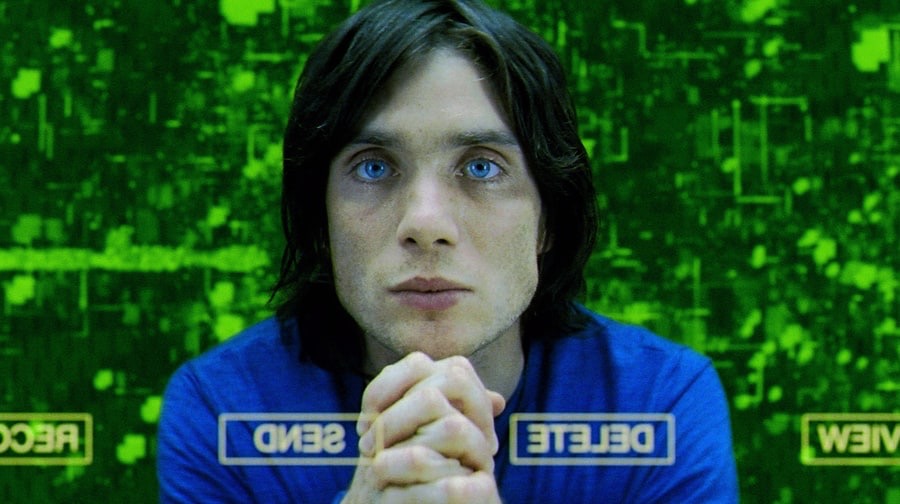
 By the very nature of their profession, actors are paid to pretend, but it’s not often – on film at least – that they have to make believe they’re looking at the Sun without it actually being there. But, when he says, “The Sun was all put in afterwards in post-production”, Irish-born Cillian Murphy isn’t joking.
By the very nature of their profession, actors are paid to pretend, but it’s not often – on film at least – that they have to make believe they’re looking at the Sun without it actually being there. But, when he says, “The Sun was all put in afterwards in post-production”, Irish-born Cillian Murphy isn’t joking.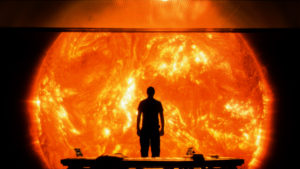 “It wasn’t supposed to be luxurious and it wasn’t,” chuckles Murphy. “A lot of the time as actors you come in on a Monday morning and the director says, ‘Right, you’ve known each other for ten years.’ And you can do it, you can do the job. There’s that classic scene in Alien where they’re around the table and they get an amazing sense of familiarity. You really believe that they’ve been travelling together in space for however long. We wanted to get that sense as well so the best way to do that, other than actually acting it is to live together and then let the experience inform the performance. We all lived together and ate and cooked and drank together.”
“It wasn’t supposed to be luxurious and it wasn’t,” chuckles Murphy. “A lot of the time as actors you come in on a Monday morning and the director says, ‘Right, you’ve known each other for ten years.’ And you can do it, you can do the job. There’s that classic scene in Alien where they’re around the table and they get an amazing sense of familiarity. You really believe that they’ve been travelling together in space for however long. We wanted to get that sense as well so the best way to do that, other than actually acting it is to live together and then let the experience inform the performance. We all lived together and ate and cooked and drank together.”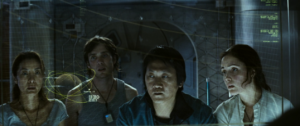 As well as recreating what sounds like a Thespian version of The Young Ones, the actors were all sent on an “astronaut bootcamp” which saw them attend lectures, go scuba diving (the nearest we can get to space-walking on Earth) and a trip in a light aircraft to stimulate zero-G.
As well as recreating what sounds like a Thespian version of The Young Ones, the actors were all sent on an “astronaut bootcamp” which saw them attend lectures, go scuba diving (the nearest we can get to space-walking on Earth) and a trip in a light aircraft to stimulate zero-G.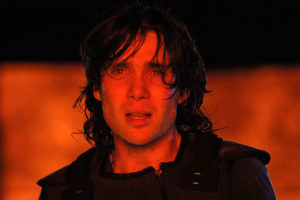 Another vital piece of preparation for Murphy was hanging out with the film’s scientific adviser, Dr Brian Cox. Though employed at the Centre for European Nuclear Research, the world’s largest particle-physics laboratory, his varied CV includes a stint as D:Ream’s keyboardist. He doesn’t sound like your typical egghead.
Another vital piece of preparation for Murphy was hanging out with the film’s scientific adviser, Dr Brian Cox. Though employed at the Centre for European Nuclear Research, the world’s largest particle-physics laboratory, his varied CV includes a stint as D:Ream’s keyboardist. He doesn’t sound like your typical egghead.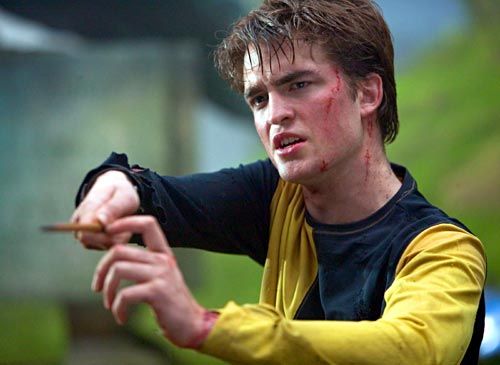
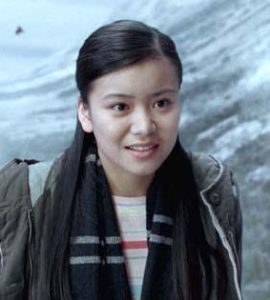 You beat 5,000 people for the role of Cho Chang. That must have been nerve-wracking…
You beat 5,000 people for the role of Cho Chang. That must have been nerve-wracking…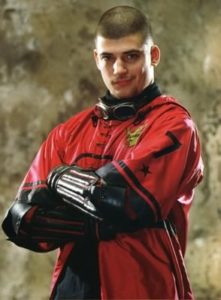 Were you a fan of the Harry Potter stories before joining the cast?
Were you a fan of the Harry Potter stories before joining the cast?
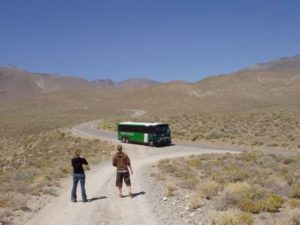 We’re on a coach, one of several buses in the Green Tortoise fleet. A tour operator with a difference, the company, operating primarily out of San Fran, runs trips all over the US, as well as taking in Mexico, Panama, Costa Rica and Nicaragua. Their main selling point is cheapness (our five day trip costs just $350) and the unique experience of crossing continents in a Tortoise bus.
We’re on a coach, one of several buses in the Green Tortoise fleet. A tour operator with a difference, the company, operating primarily out of San Fran, runs trips all over the US, as well as taking in Mexico, Panama, Costa Rica and Nicaragua. Their main selling point is cheapness (our five day trip costs just $350) and the unique experience of crossing continents in a Tortoise bus.
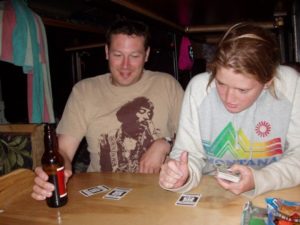 We’re on one of the Tortoise’s shorter tours, the Western Trail – a five-day loop beginning and ending in San Francisco. Happily, the trip is far from sold out, meaning space is plentiful. Even so, being in close proximity with strangers soon means that we’re chatting away. Before long we’re bonding over beer and ‘shithead’ – the backpackers’ card-game of choice – while the California coastline shimmers by.
We’re on one of the Tortoise’s shorter tours, the Western Trail – a five-day loop beginning and ending in San Francisco. Happily, the trip is far from sold out, meaning space is plentiful. Even so, being in close proximity with strangers soon means that we’re chatting away. Before long we’re bonding over beer and ‘shithead’ – the backpackers’ card-game of choice – while the California coastline shimmers by.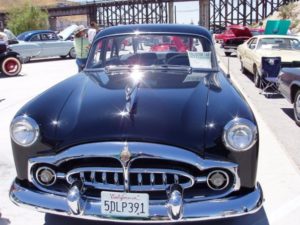
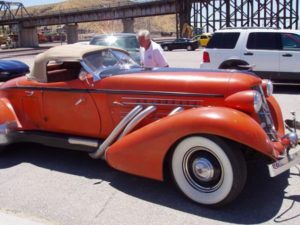 Leaving LA’s smog behind, the bus thunders into the majesty of the Nevada desert along Route 66. Surrounded by Joshua trees and with the horizon rippling in heat-haze, it’s time to whack the air-con on full. We make one daytime stop, at a diner and museum where a vintage auto fair is taking place. Impossibly polished Chevrolets, Lincolns and Mustangs gleam in the blazing sun.
Leaving LA’s smog behind, the bus thunders into the majesty of the Nevada desert along Route 66. Surrounded by Joshua trees and with the horizon rippling in heat-haze, it’s time to whack the air-con on full. We make one daytime stop, at a diner and museum where a vintage auto fair is taking place. Impossibly polished Chevrolets, Lincolns and Mustangs gleam in the blazing sun.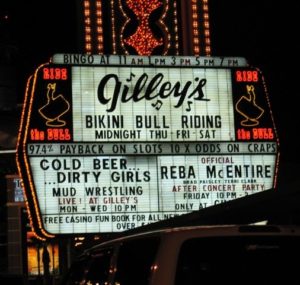

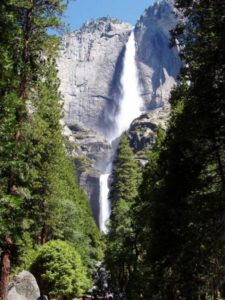 Morning sees us arrive at Yosemite National Park. Despite warnings about bears, the place is full of tourists, most of whom are content to trundle around on electric buses. Being young(ish), we go trekking and soon leave the crowds behind. It’s truly spectacular – I promise myself that I’ll return here, possibly for one of the deep country two-week hikes. I especially enjoy jumping into a heart-stoppingly cold lake. For me, Yosemite is the trip’s highlight and most people concur. The only downside – monster mosquitoes. By the time we get back to the bus, blood is running down our legs. Should’ve taken that insect warning more seriously.
Morning sees us arrive at Yosemite National Park. Despite warnings about bears, the place is full of tourists, most of whom are content to trundle around on electric buses. Being young(ish), we go trekking and soon leave the crowds behind. It’s truly spectacular – I promise myself that I’ll return here, possibly for one of the deep country two-week hikes. I especially enjoy jumping into a heart-stoppingly cold lake. For me, Yosemite is the trip’s highlight and most people concur. The only downside – monster mosquitoes. By the time we get back to the bus, blood is running down our legs. Should’ve taken that insect warning more seriously.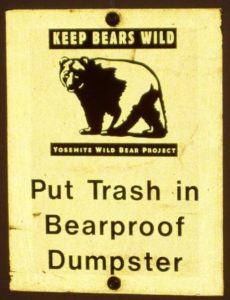
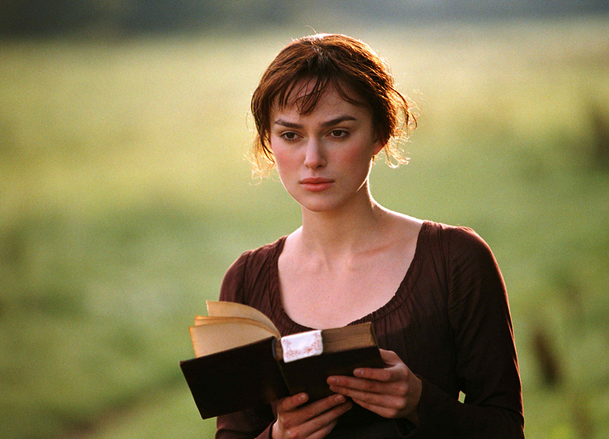
 The only fly in the ointment of sisterly affection is Johnny Depp. Both actresses have worked with him, Pike on 2004’s The Libertine and Knightley on the Pirates of the Caribbean films.
The only fly in the ointment of sisterly affection is Johnny Depp. Both actresses have worked with him, Pike on 2004’s The Libertine and Knightley on the Pirates of the Caribbean films.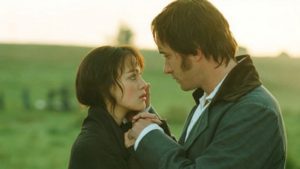 The other man in Elizabeth Bennett’s life is her elderly father. Although a small part, Mr Bennett’s cantankerous but loving personality permeates the story, requiring an actor blessed with incredible presence. With Donald Sutherland, the production got that in spades.
The other man in Elizabeth Bennett’s life is her elderly father. Although a small part, Mr Bennett’s cantankerous but loving personality permeates the story, requiring an actor blessed with incredible presence. With Donald Sutherland, the production got that in spades.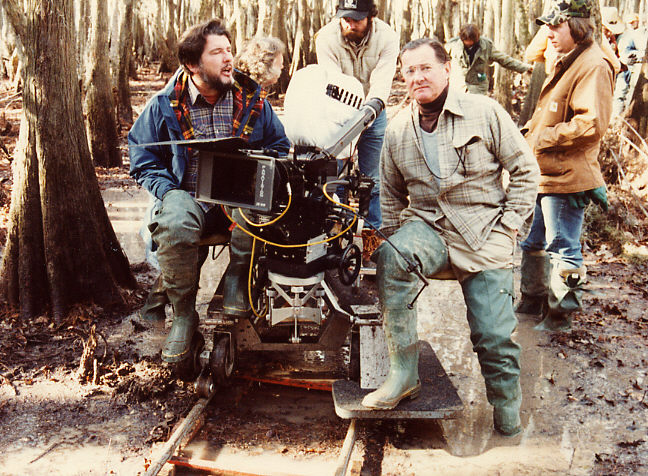
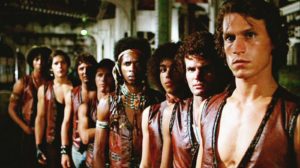 “We made it on the shoestring, shooting almost entirely on location during New York’s wettest summer in 75 years. And we were in some very rough neighbourhoods. It was controversial when it came out in ’79 but, looking at it now, with all these kids running around wearing masks, you’ve got to wonder where the national peril is. But the main problem was that the film didn’t critique gangs. For my protagonists, the gang is a positive, protective force. I think that upset a lot of people.”
“We made it on the shoestring, shooting almost entirely on location during New York’s wettest summer in 75 years. And we were in some very rough neighbourhoods. It was controversial when it came out in ’79 but, looking at it now, with all these kids running around wearing masks, you’ve got to wonder where the national peril is. But the main problem was that the film didn’t critique gangs. For my protagonists, the gang is a positive, protective force. I think that upset a lot of people.”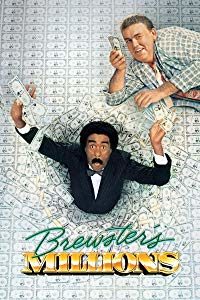 “Richard Pryor wasn’t a terribly happy guy at that point but I liked working with him. I think he was in a horrible dilemma – he felt that if he didn’t use drugs he wasn’t funny, and if he did use drugs, he would die. That’s a hell of position to find yourself in. I thought this was one of his finest performances. John Candy was a great talent, too. A terrific guy. I miss him. He was a friend.”
“Richard Pryor wasn’t a terribly happy guy at that point but I liked working with him. I think he was in a horrible dilemma – he felt that if he didn’t use drugs he wasn’t funny, and if he did use drugs, he would die. That’s a hell of position to find yourself in. I thought this was one of his finest performances. John Candy was a great talent, too. A terrific guy. I miss him. He was a friend.”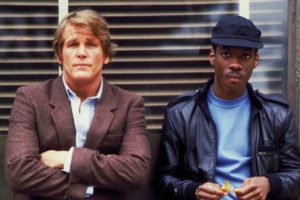 “I originally wanted Richard [Pryor] but that never happened and then we tried to get Greg Hines but he couldn’t get out of another project. Eddie Murphy had a very clever agent, who later became my wife, who knew of our dilemma. She sent me a bunch of tapes of Eddie on Saturday Night Live and I thought he was terrific.”
“I originally wanted Richard [Pryor] but that never happened and then we tried to get Greg Hines but he couldn’t get out of another project. Eddie Murphy had a very clever agent, who later became my wife, who knew of our dilemma. She sent me a bunch of tapes of Eddie on Saturday Night Live and I thought he was terrific.”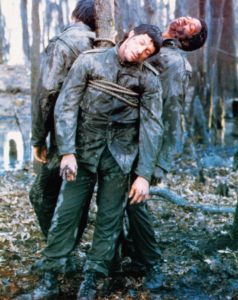
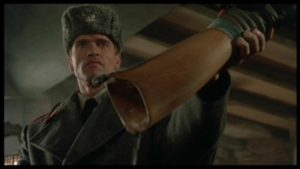
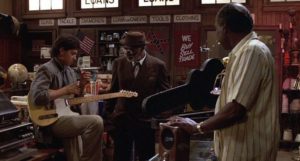
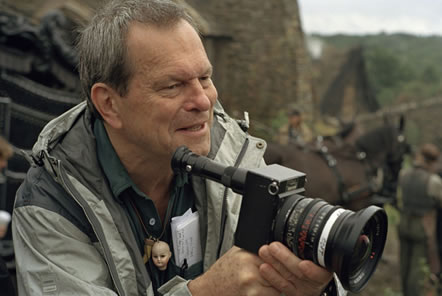
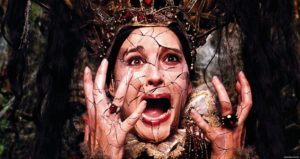 “It would have been nice if we could’ve got a PG in the States,” says Gilliam. And he’s not joking; he’s genuinely puzzled that adults deem the film too scary for children. And he’s got a point. Yes, the film is macabre but, as is often the case with Gilliam’s work, it’s tempered by a warm-hearted sense of ludicrous. It’s frightening in the same way that, well, the best fairytales are.
“It would have been nice if we could’ve got a PG in the States,” says Gilliam. And he’s not joking; he’s genuinely puzzled that adults deem the film too scary for children. And he’s got a point. Yes, the film is macabre but, as is often the case with Gilliam’s work, it’s tempered by a warm-hearted sense of ludicrous. It’s frightening in the same way that, well, the best fairytales are.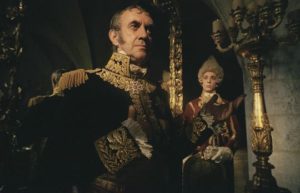 And The Brothers Grimm has them in spades. Not only does Peter Stormare (seen recently as Satan in Constantine), chew the scenery as an idiotic Italian mercenary, but Gilliam is once again reunited with Jonathan Pryce. Having starred as a beleaguered bureaucrat in Brazil, here he pops up as a general in Napoleon’s army, complete with silly French accent, in many ways reprising his role as Baron Munchausen’s unimaginative bean-counting nemesis to. This triumph of the fantastical over rationalism is another key theme of Gilliam’s films.
And The Brothers Grimm has them in spades. Not only does Peter Stormare (seen recently as Satan in Constantine), chew the scenery as an idiotic Italian mercenary, but Gilliam is once again reunited with Jonathan Pryce. Having starred as a beleaguered bureaucrat in Brazil, here he pops up as a general in Napoleon’s army, complete with silly French accent, in many ways reprising his role as Baron Munchausen’s unimaginative bean-counting nemesis to. This triumph of the fantastical over rationalism is another key theme of Gilliam’s films.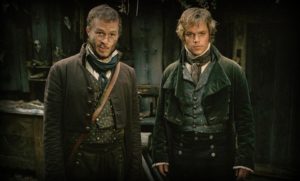 By setting the Brothers Grimm in a historically accurate setting of Napoleonic Europe, Gilliam is able to explore this theme, albeit with full-on fantasy elements. An added bonus for the director, if his mischievous cackle is anything to go by, seems to be that he gets to mock the French.
By setting the Brothers Grimm in a historically accurate setting of Napoleonic Europe, Gilliam is able to explore this theme, albeit with full-on fantasy elements. An added bonus for the director, if his mischievous cackle is anything to go by, seems to be that he gets to mock the French.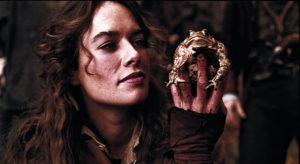 Evil witches and enchanted forests notwithstanding, The Brothers Grimm is a gritty, bloody and muddily authentic version of history, typical of Gilliam. This extends to some gruesome scenes in which Angelicka the hunter, played by Huddersfield-born Lena Heady, is seen skinning and gutting a rabbit. Not only did this contribute to the film’s PG-13 certificate, but it caused Heady, a strict vegetarian, much consternation. Predictably, this is a source of great amusement to Gilliam.
Evil witches and enchanted forests notwithstanding, The Brothers Grimm is a gritty, bloody and muddily authentic version of history, typical of Gilliam. This extends to some gruesome scenes in which Angelicka the hunter, played by Huddersfield-born Lena Heady, is seen skinning and gutting a rabbit. Not only did this contribute to the film’s PG-13 certificate, but it caused Heady, a strict vegetarian, much consternation. Predictably, this is a source of great amusement to Gilliam.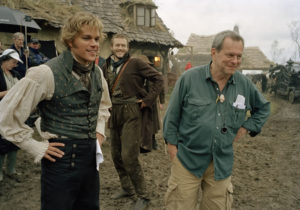 “It’s very bizarre,” he says of the show that launched him. “We’ve each done a personal best that’s coming out on DVD soon and looking at the episodes today it’s shocking how bad it is. It’s so cheesy, it’s so cheap and yet it’s still really funny. Nothing’s come along and matched it. I don’t know why. The League of Gentleman I loved because I thought they captured a similar grotesqueness. But that ‘ex-Python’ thing will always be there. It’ll be on the gravestone, depending on what I do next. Maybe,” he chuckles, “it will say ex-Bond Girl…”
“It’s very bizarre,” he says of the show that launched him. “We’ve each done a personal best that’s coming out on DVD soon and looking at the episodes today it’s shocking how bad it is. It’s so cheesy, it’s so cheap and yet it’s still really funny. Nothing’s come along and matched it. I don’t know why. The League of Gentleman I loved because I thought they captured a similar grotesqueness. But that ‘ex-Python’ thing will always be there. It’ll be on the gravestone, depending on what I do next. Maybe,” he chuckles, “it will say ex-Bond Girl…”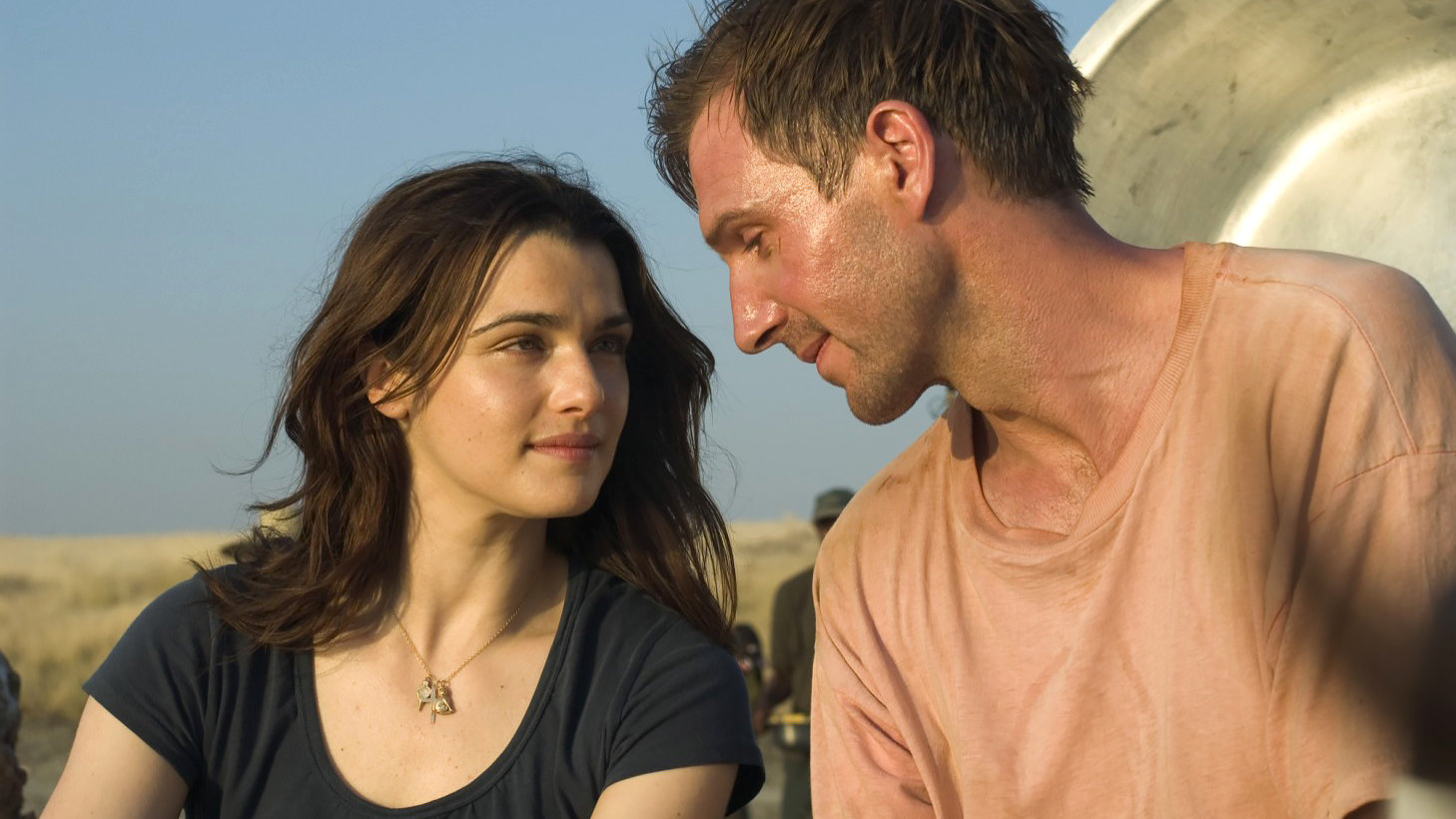
 “Some actors don’t like it,” she says, “but Ralph and I both like to experiment – we both share that desire to play around. Fernando likes to work with complete freedom and spontaneity. Obviously it’s a thriller so there were plot elements we had to retain. But Fernando allowed us to have freedom in some scenes. Like when Ralph’s in the bathroom pretending to be Jacques Cousteau – that wasn’t in the script. That was just him having fun.”
“Some actors don’t like it,” she says, “but Ralph and I both like to experiment – we both share that desire to play around. Fernando likes to work with complete freedom and spontaneity. Obviously it’s a thriller so there were plot elements we had to retain. But Fernando allowed us to have freedom in some scenes. Like when Ralph’s in the bathroom pretending to be Jacques Cousteau – that wasn’t in the script. That was just him having fun.”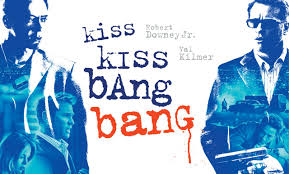
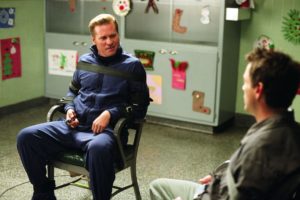 “He’s just so happy he didn’t die,” is how Kilmer affectionately describes his co-star. “Doing this was just so much fun because it’s a wonderful thing to see someone as loveable as him make it back. There are a lot of mean, twisted, tortured people in our business but Robert didn’t do any bad things to other people, he did them to himself. He always had a lot of love and support in the community and Hollywood does so love a comeback.”
“He’s just so happy he didn’t die,” is how Kilmer affectionately describes his co-star. “Doing this was just so much fun because it’s a wonderful thing to see someone as loveable as him make it back. There are a lot of mean, twisted, tortured people in our business but Robert didn’t do any bad things to other people, he did them to himself. He always had a lot of love and support in the community and Hollywood does so love a comeback.”